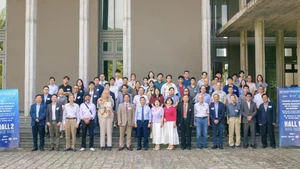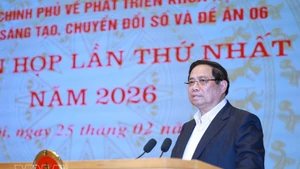Nguyen Thi Kim Thanh, a professor of nanomaterials at the University College London (UCL), has recently been elected academician of the Academy of Europe (Academia Europaea - AE), making her the first Vietnamese in this prestigious scientific organisation.
As a new member, Thanh has been invited by the AE to attend and present her research in a thematic session at its 2024 Annual Conference in Wroclaw, Poland, in November and attend a banquet with the President of Poland.
Professor Thanh said she hopes that this event will contribute to enhancing the reputation of Vietnamese intellectuals and scientists in the world, and encouraging them to confidently integrate with the world's advanced science.
In 1992, she graduated and received an award for top academic achievement in Chemistry at the Vietnam National University in Hanoi and was selected to study at the University of Amsterdam in a NUFFIC (the Netherlands organisation for international cooperation in higher education) programme, under which she embarked on a career in research.
She became the first Vietnamese professor at the UCL in 2013 and has received a plenty of awards from reputable scientific associations and academies over the world, including the IUPAC 2023 distinguished women in chemistry or chemical engineering, the 2022 RSC Interdisciplinary Prize, the SCI/RSC Colloids Groups 2023 Graham Prize Lectureship, and the Royal Society Rosalind Franklin Award and Lecture 2019.
Established in 1988, the AE is the Pan-European Academy of Sciences Humanities and Letters.
It currently has more than 5,500 members, including leading experts from the physical sciences and technology, biological sciences and medicine, mathematics, the letters and humanities, social and cognitive sciences, economics, and the law.
















